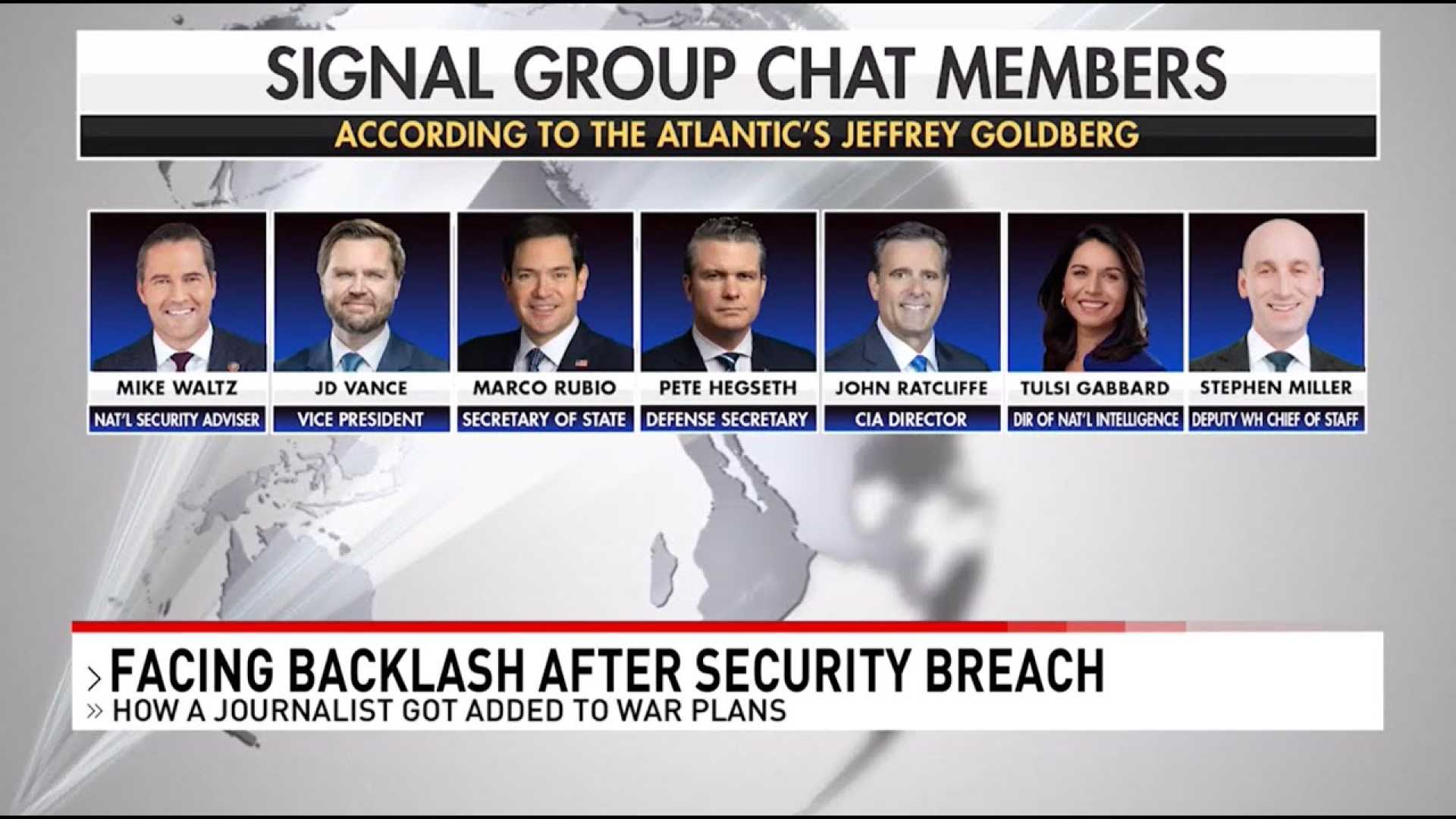Politics
Trump Administration’s Security Breach Sparks Debate Over Confidential Communications

WASHINGTON, D.C. — The Trump administration is facing scrutiny following revelations of a security breach involving sensitive military communications on the Signal messaging app. On Monday, during a Senate hearing, Secretary of Defense responded to questions about sharing confidential plans regarding a military operation in Yemen.
“Nobody was texting war plans. And that’s all I have to say about that,” the Secretary said, downplaying the incident. This exchange follows a report published earlier that highlighted the breach involved the communication of key information just before military action took place.
During the Senate Intelligence Committee meeting, National Intelligence Director and CIA Director John Ratcliffe echoed the Secretary’s sentiments, stating that his messages in the Signal group were “entirely permissible and lawful.” Ratcliffe reinforced that no classified information was shared in the chat.
Experts have raised concerns about the implications of discussing national security strategies over non-secure platforms, citing that critical military details could compromise the safety of U.S. forces. In particular, Editor-in-Chief Jeffrey Goldberg of The Atlantic, who was inadvertently included in the group chat, noted that the timing and nature of the messages exchanged posed potential risks.
“There was no classified material that was shared in that Signal group,” echoed Republican former congresswoman Tulsi Gabbard, who also addressed the Committee. However, that remark failed to dissipate concerns surrounding the administration’s rationalization of the messages shared.
The Atlantic originally chose to withhold specific information about the military operation, prioritizing the safety of U.S. personnel. The decision came amid conflicting narratives emphasizing that no plans were classified. Nevertheless, the circulating texts included critical logistics about airstrike timing, which experts argue could have significant ramifications if obtained by adversaries.
“If this information—particularly the exact times American aircraft were taking off for Yemen—had fallen into the wrong hands, American pilots could have been placed in great danger,” said an anonymous military analyst.
The administration responded to inquiries about publishing the full unredacted texts, which featured operational details rather than strictly administrative planning. The White House Press Secretary Karoline Leavitt confirmed via email that while no classified information was conveyed, there remained a reluctance to release the chats, characterizing them as sensitive internal discussions.
Leavitt remarked, “This was intended to be an internal and private deliberation amongst high-level senior staff, and sensitive information was discussed. Therefore, yes, we object to the release.” This position raised further questions regarding the administration’s commitment to transparency.
As this issue escalates, the general public and policymakers are grappling with how knowledge leaked through non-secure channels can influence national security policy. Notably, questions arise regarding vulnerability in communication strategies within the Defense Department and the broader implications for utilizing messaging applications for sensitive discourse.
In light of the ongoing investigations and the push for accountability, Shieh noted, “It’s essential to scrutinize what is being conveyed through these platforms, evaluating the balance between secure communications and operational efficiency.”
The controversy signifies an urgent dialogue on transparency and national security and is expected to catalyze ongoing discussions about protocol, communication legislation, and the intersection with existing laws governing classified information disclosure.












